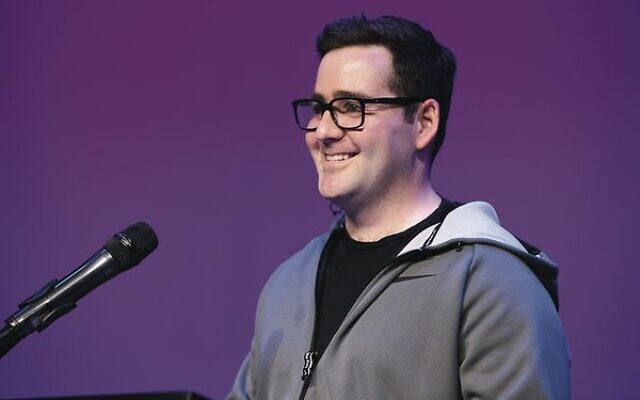Creating a kinder, more compassionate world
'I learnt that by sharing, I feel empowered rather than ashamed'
A few years ago, an innocent photo of a dress split the internet into two vehemently disagreeing groups. One group insisted the dress was white and gold. The other, insisted it was black and blue. Husbands and wives, sisters and colleagues, went to war with each over the “correct colour” of the dress, both camps utterly stunned at the others’ difference in perception.
The dress debacle reminds me of a comment made by Adam Silver – one of our speakers at Brave Talks, which saw six people in the community, each share their experience of a mental health challenge.
Adam captivated the audience when he vulnerably shared his experience of schizophrenia.
He later said: “Hearing voices is just another experience of reality. Some of us hear them, some of us don’t. It’s not a character flaw; it’s just a difference in experience.”
Some people see white and gold. Some people see blue and black. It’s just a difference in experience.
And yet, as Adam will share, that’s not how most people respond to his experience of schizophrenia.
“What I most need, when I’m hearing voices, is to be able to say ‘hey, I’m hearing this, are you hearing this too?’ so I can reality test and feel safe again. But I worry, that if I do that, they’ll think I’m a basket case.”
A basket case. I don’t think anyone who got caught up seeing a different colour dress, worried they would be labelled a basket case! And yet, this is the overwhelming fear that keeps us silent and alone, when we are in the depths of a mental or emotional health challenge.
If I tell my boss I’ve been having panic attacks, she’ll think I’m fragile; it will affect my career. If I tell my friends I’ve been too depressed to leave the house, they’ll think I’m useless and lazy. These fears speak to the stigma that has wrapped itself, like a jellyfish, around our experiences of mental illness.
Worse still, the stigma doesn’t just exist in the external world; many of us have internalised it, taking it into our minds and hearts. We judge ourselves as weak, useless, fragile or crazy. We kick ourselves when we’re down, we rub salt in our own wounds. We find it hard to muster any kind of self-compassion and kindness, because we’ve been socialised to believe that the experience of emotional or mental distress is a character flaw. This only adds avoidable suffering to the original pain we are carrying.
So what can we do? How can we create a kinder, more compassionate world – both inside ourselves, and within the community?
At JewishCare, we believe in the power of language, storytelling and connection.
Language helps separate us, the human beings, from the diagnosis. We can talk about having an experience of depression. This is different to being “a depressive” or “having depression” – which implies the symptoms are embedded within us, rather than unhelpful behaviours, emotions or beliefs that have come to visit. Admittedly, they’re the kind of visitors who spill tomato soup on the new carpet and stay way past their welcome!
Storytelling is another way we can step back from our experience of mental illness and rediscover our separateness from distressing symptoms. Brave Talks proved that when storytelling is combined with our innate desire for connection, something powerful happens. We saw this in an email Adam shared with us, after he spoke at the event: “I learnt that I can stand up in a room of 200 people. I learnt that people want to hear about my journey with mental health issues. I learnt that if I do talk about my schizophrenia people are prepared to listen. I learnt that by sharing, I feel empowered rather than ashamed.”
If this doesn’t illustrate the power of storytelling and connection, I don’t know what does!
We also saw the power of Brave Talks, for our audience, as one woman who came along shared: “The very next morning I went to my hairdresser who has just given birth. When I was chatting to her, I could see some signs of post-natal depression and could have a good open chat with her about getting help.”
See that? Brave Talks leads to brave conversations. So how do we have more brave conversations? We use two, seemingly opposing levers: risk and safety. We help each other feel safe enough, to take the risk of sharing what’s really going on.
Our first question should be: “Am I giving this person, in front of me, the sense that I’m a safe person to be vulnerable with?”
If we’re lucky enough to be trusted with their truth, we then need to ask: “What can I do to affirm this person of their courage and strength?”
Perhaps then, we can start to create a world where it is safe enough for Adam to ask: “Can you hear that?”
At JewishCare we are in the process of designing our brand new mental health intake and triage model that will streamline and make a real difference in the delivery of mental health services to our community.
Gary Groves is CEO of JewishCare. Brave Talks is a partnership between JewishCare NSW and JCA The Choice Foundation.


comments